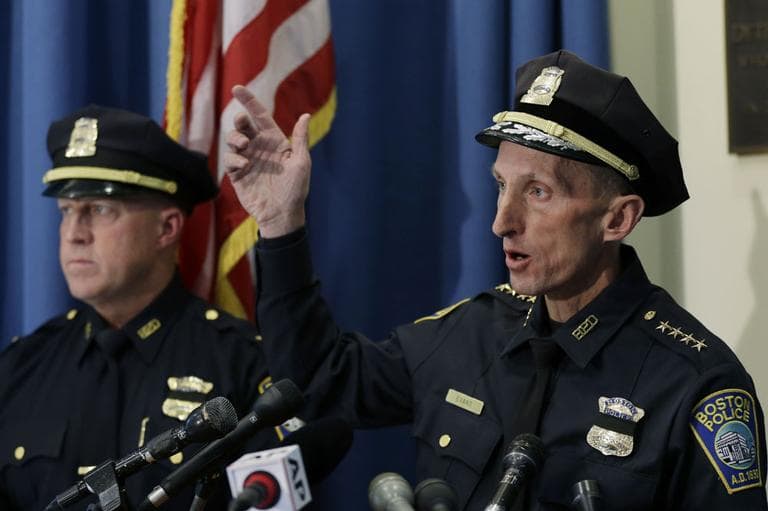Advertisement
Terrorism, Law, And The Boston Bombings
ResumeSuper attorney Alan Dershowitz on terrorism, American law, and the Boston bombing.

Alan Dershowitz has been the star attorney in the middle of some of the biggest legal cases in the mega-media age. OJ Simpson, Patty Hearst, Mike Tyson, Claus von Bulow. Robert Chesney has been in the middle of the country’s legal debate over handling terrorism and terrorists.
Now they’re both paying close attention to the Boston Marathon bombing and the handling of surviving suspect Dzhokar Tsarnaev. The charges of using a weapon of mass destruction, and much more.
This hour, On Point: Alan Dershowitz and Robert Chesney on the bombing and the law.
- Tom Ashbrook
Guests
Alan Dershowitz, lawyer and professor at Harvard Law School. (@alandersh)
Robert Chesney, lawyer and professor at the University of Texas School of Law.
Jack Beatty, On Point news analyst.
From Tom's Reading List
The New York Times: Legal Questions Riddle Boston Marathon Case — "Still, there is not yet any public evidence suggesting that Mr. Tsarnaev was part of Al Qaeda or its associated forces — the specific enemy with which the United States is engaged in an armed conflict. And some legal specialists also doubted that the Constitution would permit holding a suspect like Mr. Tsarnaev as an enemy combatant. 'This is an American citizen being tried for a crime that occurred domestically, and there is simply no way to treat him like an enemy combatant — not even close,' said Alan M. Dershowitz, a Harvard law professor and seasoned defense lawyer."
Lawfare Blog (Robert Chesney): Tsarnaev Has Been Mirandized by the Court: What Is the Next Interrogation Issue? — "It is also possible that he will not cooperate. In that case, the million dollar question becomes whether the government would attempt to conduct interrogations notwithstanding an invocation of the right to remain silent or a request not to be questioned absent the presence of an attorney. One hopes it need not come to this. If it does, there will be fierce criticism whichever path the government takes (and, presumably, much litigation if the government does attempt an intelligence-focused interrogation without counsel)."
Slate: Why Should I Care That No One’s Reading Dzhokhar Tsarnaev His Miranda Rights? — "Dzhokhar Tsarnaev will not hear his Miranda rights before the FBI questions him Friday night. He will have to remember on his own that he has a right to a lawyer, and that anything he says can be used against him in court, because the government won’t tell him. This is an extension of a rule the Justice Department wrote for the FBI—without the oversight of any court—called the 'public safety exception.'"
This program aired on April 25, 2013.